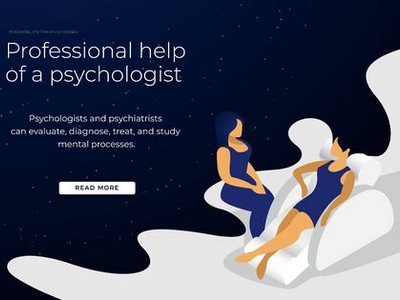
Am I Anxious Or Depressed Psychologist Ashmore (07) 5539 9798
Isabella Whittingham Registered Psychologist Ashmore

Introduction: Signs And Symptoms Of Anxiety And Depression Psychologist Ashmore Near Me
In today's busy and requiring world, psychological health issues have become significantly widespread. 2 of the most typical psychological health conditions are stress and anxiety and anxiety. While they might share Ashmore Near Me Gender Therapy Innovators some resemblances, it is necessary to comprehend the differences in between the two conditions in order to look for appropriate treatment and support. This short article intends to offer a thorough understanding of stress and anxiety and depression, their symptoms, triggers, and offered treatments.
Anxiety vs. Depression: Comprehending the Differences and Similarities
What is Anxiety?
Anxiety is a typical human feeling that everybody experiences from time to time. It is defined by sensations of concern, fear, or worry. However, when these feelings end up being extreme or relentless, it might indicate an anxiety disorder.
Symptoms of Anxiety
- Excessive worrying
- Restlessness
- Trouble concentrating
- Irritability
- Muscle tension
- Sleep disturbances
Causes of Anxiety
Anxiety can be triggered by a combination of hereditary, environmental, and psychological factors. Distressing life events, chronic stress, or a family history of stress and anxiety conditions can increase the risk of developing an anxiety disorder.
What is Depression?
Depression is a state of mind condition that affects how an individual believes, feels, and behaves. It exceeds typical feelings of unhappiness or sorrow and can significantly affect daily performance and quality of life.
Symptoms of Depression
- Persistent sadness or emptiness
- Loss of interest or enjoyment in activities
- Fatigue or low energy levels
- Changes in appetite or weight
- Difficulty sleeping or oversleeping
- Feelings of insignificance or guilt
Causes of Depression
Depression is a complex condition with several contributing factors. It can be caused by hereditary predisposition, biochemical imbalances in the brain, hormonal changes, specific medical conditions, or traumatic life events.
Similarities Between Anxiety and Depression
While stress and anxiety and anxiety are distinct conditions, they often exist side-by-side and share some common signs. Both conditions can cause feelings of restlessness, irritability, difficulty focusing, and sleep disruptions. Additionally, people with stress and anxiety or depression may experience physical symptoms such as headaches, gastrointestinal concerns, or chronic pain.
Differences Between Anxiety and Depression
Emotional Symptoms
Anxiety is primarily identified by extreme worry and worry, while depression is marked by persistent sadness and loss of interest in activities. People with anxiety may feel on edge or continuously on guard, whereas those with depression might experience a sense of hopelessness or emptiness.
Physical Symptoms
While both anxiety and anxiety can manifest physically, the specific signs differ. Anxiety frequently provides with signs such as muscle tension, racing heart, shortness of breath, and trembling. In contrast, depression may cause low energy levels, modifications in cravings or weight, and sleep disturbances.
Thought Patterns
Anxiety tends to be associated with excessive rumination and overthinking. People with anxiety typically have racing ideas and might have a hard time to control their concerns. On the other hand, anxiety is identified by negative idea patterns such as self-criticism, sensations of worthlessness, and a cynical outlook on life.
Impact on Daily Functioning
Both stress and anxiety and anxiety can considerably affect day-to-day functioning; nevertheless, they do so in different methods. Stress and anxiety can result in avoidance habits or difficulty concentrating on tasks due to extreme worry. Anxiety frequently results in reduced motivation, loss of interest in formerly delighted in activities, and troubles with decision-making.
FAQs about Anxiety vs. Depression
Q: Is stress and anxiety a sign of depression? A: While anxiety can be a symptom of anxiety for some individuals, it is not always the case. Anxiety disorders and anxiety are distinct psychological health conditions that can exist side-by-side however also take place independently.
Q: Can you have both anxiety and depression at the very same time? A: Yes, it is possible to have both stress and anxiety and depression simultaneously. This is called comorbidity, and it is reasonably typical for people with mental health disorders.
Q: Is anxiety or depression more common? A: Anxiety conditions are somewhat more common than depression, but both conditions are among the most typical mental health disorders worldwide.
Q: Can stress and anxiety turn into depression? A: While anxiety can contribute to the advancement of depression in many cases, it does not necessarily result in anxiety. However, chronic and unattended anxiety can increase the threat of establishing depressive symptoms.
Q: Are there effective treatments for stress and anxiety and depression? A: Yes, there are a number of evidence-based treatments available for stress and anxiety and anxiety. These might consist of treatment (such as cognitive-behavioral therapy), medication, way of life changes, and self-help strategies.
Q: How long does stress and anxiety or depression last? A: The duration of stress and anxiety or depression can differ widely depending on specific factors such as treatment adherence, support group, and underlying causes. Some people may experience acute episodes that solve within a couple of weeks or months, while others may have persistent conditions that require continuous management.
Depression And Anxiety Quiz Psychologist Ashmore
Depression And Anxiety Quiz Psychologist Ashmore Near Me
Isabella Whittingham Registered Psychologist Gold Coast
Surfers Paradise Chiropractic Centre-Dr. Bruce Whittingham
12 Thomas Drive, Surfers Paradise QLD 4217
(07) 5539 9798
https://surfersparadisechiropractic.com.au
Depression Psychologist Ashmore Near Me